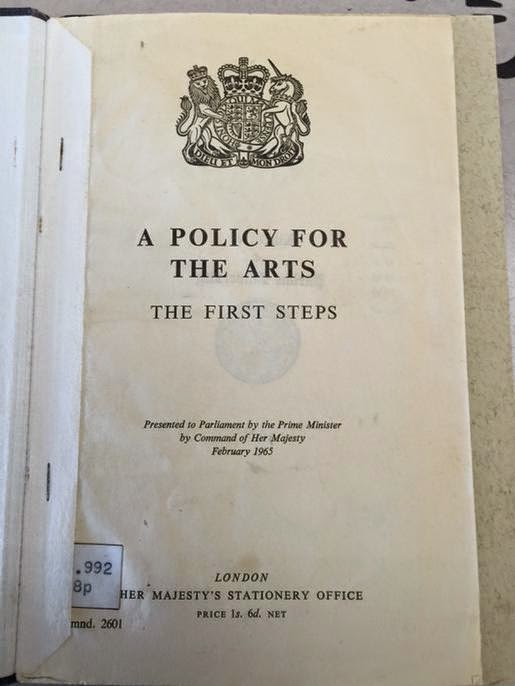I'm currently sitting on the train. This is a usual occurrence for me, but this time I'm on my way to a few days of induction at the University of Exeter, before I start my full-time PhD (funded by the Arts and Humanities Research Council under the SWWDTP). It's the beginning of a new and exciting chapter, but - as someone who finds endings difficult - this train journey is not only a chance to start feeling those churnings of nervous excitement, but also to reflect on the previous five years of freelance life since I finished my MA at Central.
I'll be keeping a couple of my jobs on to start with, as the practice feeds into my research (and I might need some pocket money!), before the Big Move to Devon with my wife next year, but certainly my working life of 11 to 13 jobs (on average) is now a thing of the past. This won't be a comprehensive list, but here's a few of the highlights and low-points of my self-employed adventures...
LOW POINTS
- Anyone who knows me well or is linked with me on social media won't find it difficult to guess what I'll put first here. BLOODY TRAINS!!! It might seem like I go on about this a tad too much, but when you are as reliant on public transport as I am and trying to work jobs spread all over London and beyond, you are basically helpless to the gods of the trains and they don't seem to look too kindly on me. My life over the last five years has involved far too much time looking at the live departures and swearing as trains are cancelled, delayed, and generally screwing me over. For example, last week: I was meant to be running a two hour creative writing workshop in Folkestone for young people who are self-harming. I got to St Pancras station for my connection, just as they cancelled the trains for the next two hours. Leaving me to call work and say I couldn't get there, let the young people down, and lose a day's wages. Leaving me in tears, to be honest. I tweeted Southeastern trains, but it's hard to get across the significance of losing money I needed and letting vulnerable young people down in 140 characters.
- Not getting sick pay. Cue thought-process: "If I can't get out of bed, I will lose £100... Oh, I really can't get out of bed. Shit."
- Not getting holiday pay.
- Feeling guilty when you're not working. Something I've been working on.
- There aren't a lot of other low points, to be honest. Being paid poorly by some organisations. Last minute cancellations. Being offered a zero hours contract and then never receiving any work from them. Having a contract ended by email. Being made to wear a horrid, highly flammable uniform to go into schools (my wife told me I looked like a work experience student; I had flashbacks of trying to buy trousers for school when you're a 5'11'' teenager. No-one was winning). Setting up a project in a prison and going through security clearance and then never getting another reply so never running it. Worrying about the summer holidays, when all the schools work dries up. Worrying about money. Trying to balance it all.
HIGH POINTS
- Doing a job where I was running one session a month at an addiction recovery service and, over five years, being gradually asked to come in more and more - once every three weeks, once a fortnight, once a week and finally twice a week - at the request of the service users. And when the service went up for tender, I was the only external contractor who was kept on, as the group wanted me to keep coming. One of my proudest professional achievements.
- All the little moments. The other week, from a sixteen year old girl, grudgingly: "That was actually really helpful." From a participant a couple of years ago: "I thought I was going to hate that and I didn't".
- Laughter and tears. Chances for both.
- After working at The Living Room, funded by St Albans council, they didn't want my sessions to end, so they fund-raised and paid for me to come back. Parkinson's UK did the same: the funded sessions finished, so they wrote to their local counsellors and got enough for me to come back for another 6 months. Felt really privileged.
- When it's all going to shit and you have no idea what you're doing and then you have an idea and you pull it out the bag and it falls together like magic, like that's how you always planned it. And you sort of want to punch the air on your way out.
- Running the Theatre for Change module at St Mary's University and watching the students grow.
- The people. The funny students. The boy who doesn't speak much English but his physical comedy has you rolling on the floor. The addict who quits. The one who always shows up.
OK, mustn't get emotional. The sun has just come back out and we are about to roll into Exeter, so must go.
Singing David Bowie in my head and going to start the journey towards Dr Kate. Wish me luck!














